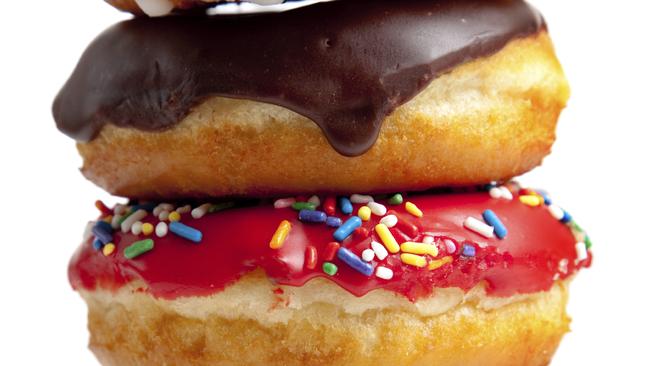How sugar is holding you back at work
IT’S not always easy to recognise when you’re addicted. You might not realise it, but there’s something holding you back at work.

IT’S not always easy to recognise when someone is addicted — especially when that person is yourself.
Not long ago, my doctor informed me that I was pre-diabetic. The mature response would have been: “Well, then I will stop eating so much processed and refined sugar.” I’m not very mature, so I threw a tantrum. “Sugar is literally my only vice! I deserve a cookie.” My doctor’s response: “Surely you can find something that will make you happy besides sugar.” Ouch. For several months after my check-up I believed that my outburst was a perfect example of emotional entitlement, the sense that my feelings needed to be protected at all costs. Since then I have come to believe that it is something much more insidious.
After my emotional meltdown, the rational side of my brain eventually won the ‘should I or shouldn’t I’ wrestling match. I decided to do something about my pre-diabetic condition. I took a 31-day challenge. No added sugar for the month of January. I did it publicly on Twitter for the extra dose of accountability. When the month was over, given the stress I was feeling of getting my book Disrupt Yourself off to the publisher, I started eating sugar again. By the end of April, I was subsisting on Peanut Butter M&Ms, chocolate chip cookies, and Diet Coke.
Like the boyfriend I’d broken up with, sugar and I couldn’t be friends yet — maybe never.
In a recent study, 10 per cent of Americans aged 12 and older admitted to using illegal drugs. Of those (who are of working age), approximately 70 per cent are employed. These circumstances have made employers acutely aware of how addictions can severely impair job performance. It’s not just the legal issues like incarceration, fraud, embezzlement, and theft, but the day-to-day productivity of employees dealing with addictions can be severely impacted. Even legal addictions, like alcohol and smoking, have been shown to lead to poor employee performance. Disability, reduced productivity, absenteeism, more frequent and longer work breaks, carelessness and mistakes seem to be the hallmarks of employees dealing with addictions and are costing companies billions.
Sugar is no different. It is addictive. Sugar, and in fact most foods, induce dopamine, an important neurotransmitter that is part of the rewards system in the brain, which produces a feeling of pleasure. This feeling of pleasure signals to the brain that we should eat that item again. However, most foods, after eating them over and over again produce less and less dopamine.
Over-eating sugar every day, similar to abusing narcotics and other addictive substances, does not produce an attenuation of the dopamine response, resulting in addiction.
After decades of having something sugary virtually every day, my first two weeks without sugar were brutal. Lethargy, a pounding headache, the inability to focus on the task in front of me and being easily distracted filled my days. Nights weren’t any better with leg aches and bad dreams hampering my attempt to get the rest I needed. Google tells me I was going through withdrawals. What was eye opening was how I felt after my withdrawals were over. Increased energy, increase focus, sharper memory, less stress and more balance emotionally, a vast improvement in productivity.
I am currently in the midst of a heated internal debate ‘Am I a moderator or do I need to be an abstainer’ when it comes to sugar? Since I love treats — I’m hoping I can be a moderator. But to get me started, I’m trying out non-addictive treats, like strawberries with freshly whipped cream. Other coping mechanisms include:
• Taking a walk around the block
• Listening to classical music while a work
• Drinking a glass of ice water with fresh slices of lemon or strawberries
• Reading a book for 30 minutes
• Watching a favourite TV show
I am not trying to win a medal, I am trying to change behaviour.
In our ultracompetitive society, we are always looking for advantages. Innovate. Expand your network. Improve your skills. Work harder. Smarter. Whatever will give us a leg up on the competition. My month of no sugar gave me a glimpse of how I could beat my biggest competitor: myself. And for those of us trying to get ahead, can we afford to give up any advantage?
Whitney Johnson is an investor, speaker, author, and leading thinker on driving innovation through personal disruption. Johnson is a founder and managing director of Springboard Fund and author of Disrupt Yourself: Putting the Power of Disruptive Innovation to Work. This article originally appeared on LinkedIn.



